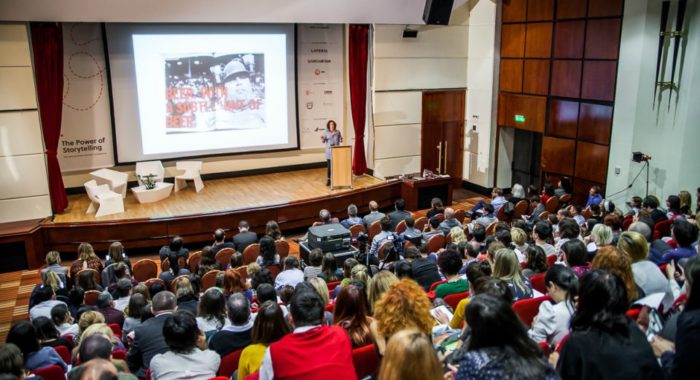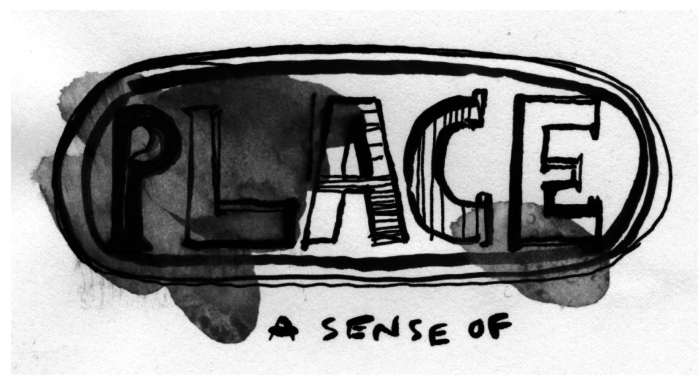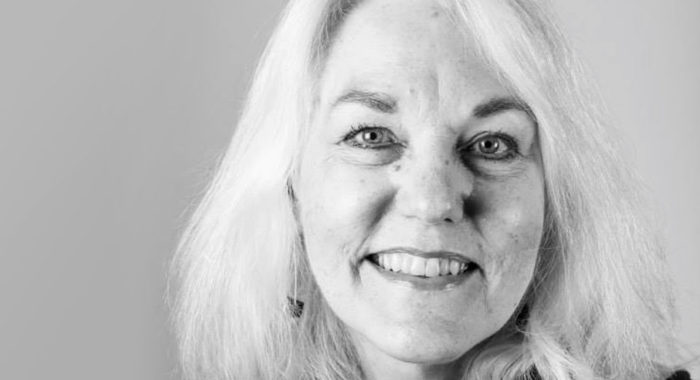Here’s a selection of just some of the memorable pieces of advice our speakers offered throughout the years.
1. Good writers don’t give away the whole story at the start. They hide it. This is the difference between news writing and storytelling. The best stories are about something more than the story itself; there’s the theme, the larger meaning of the story. But you don’t tell your reader what your theme is. You keep it and reveal it at the end. And hopefully in that moment you get that little gasp, you get that moment of emotion that you were expecting or hoping for, anyway (Chris Jones on How storytelling is like magic, 2013)
2. One of the secrets of storytelling is finding your own way to tell the story. Absorb what you can from others, but then forget them. If you don’t, you might find yourself trying to emulate the writers you’ve been reading. That could prevent you from telling your story in your own way. (Alex Tizon on Writing your own story, 2012)
3. I think that sometimes you just have to get over yourself. Sometimes you just have to survive, and this is what we had to do to survive. We had to do things that we were not ready to do and I think that is true for a lot of journalists who want to strike out as freelancers, who want to write things that are different from what your editors want you to write, and you want to go out in the world and find new magazines and new homes and do whatever will pay your bills, while you do the thing that you love doing. (Evan Ratliff on Digital entrepreneurship, 2012)
4. Totally immerse yourself, way beyond what you might have imagined. Take the magic lessons, read all of the books, learn the language if you can, or at least begin to do it, really get it as deeply as you can. (Cynthia Gorney on Finding stories within the mess, 2013)
5. The ending is where the point of your story happens. It’s the last thing you get to say, it’s the thing you leave your reader with, it’s the thing that makes them decide, in a big way, what they thought about what they just went through with the narrative that you told them. (Pat Walters on Endings, 2012)
6. What we do as magazine writers, as narrative nonfiction writers, what we do is honor the soul. The idea that people are unique and somehow important and that their stories are somehow important is what made the wellspring that feeds this work inexhaustible. (Tom Junod on Why writing is worth it, 2013)
7. It used to be that the job of the journalist or the storyteller was to have an idea, to report it, and then create it – to write it, to put it together. But work has really expanded, and now we are also doing the work of packaging and promoting our stories, and then listening and responding to our readers. So for each one of these there’s a set of new questions I think we have to ask. (Amy O’Leary on How digital trends are changing storytelling, 2014)
8. You can’t know what your neighbor is saying if you’re yelling back at him, or avoiding him, or trying to kill him. You have to listen even if it hurts. At least then maybe you’ll really know who and what you’re dealing with. No matter where I have gone, by keeping my mind open, by suspending disbelief, I have unfailingly returned home from every assignment with a new sort of understanding, a new insight, something I’d never even imagined unless I’d walked without judgment the proverbial mille in someone else’s shoes. (Mike Sager on Suspending disbelief, 2012)
9. A lot of people like to think of storytelling as an art. And I think there is definitely an artistic quality to and an artistic part of storytelling. You guys heard of the muse, the person who comes and visits you, and gives you inspiration? Trouble is when I used to call in the muse she often visited me long after deadline, when she no longer did me much good. What I learned over time was that the mechanics of storytelling were as important, and the more I could master the mechanics, the more I could call on my muse. (Jacqui Banaszynski on the Future of stories, 2012)
10. When you’re a writer, especially a freelance writer, you face rejection a lot. What you deal with is pitching stories to people and they say “no”. And it takes a long time getting used to that. Maybe some people are natural at it, but it’s a long time to get used to that. It took me a long time. You can take the “no”, but can also say “Alright, that doesn’t say anything about me. This means I have to try again.” (Evan Ratliff on Digital entrepreneurship, 2012)
Book your place for this year’s edition to make sure you won’t miss a new round of inspiration and wisdom sharing.



